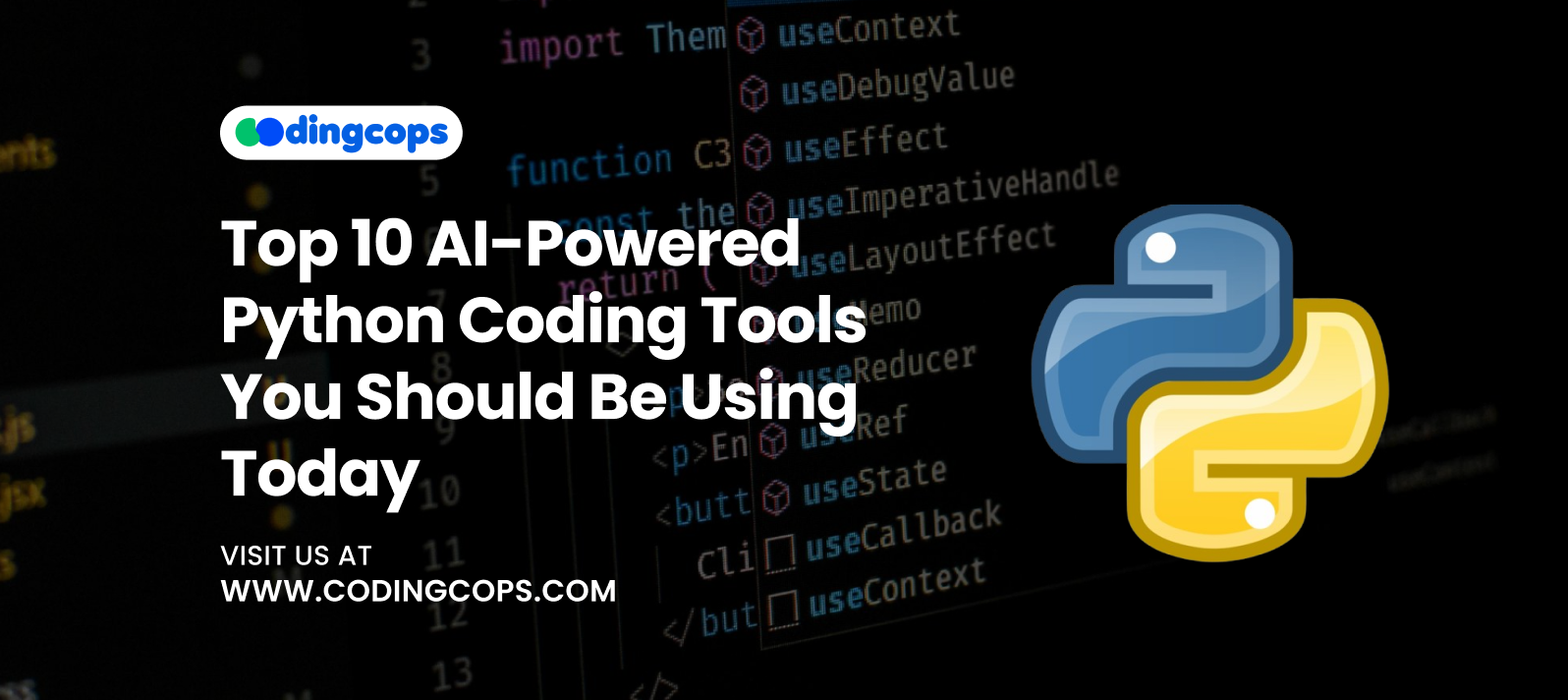According to GitHub, 92% of US developers use AI coding tools inside and outside of work. Moreover, the same survey suggests that 70% of respondents say that AI coding tools offer them an advantage at work and provide a better code quality.
Hence, AI coding tools are designed to help developers write better and faster code. Furthermore, Python has become the primary beneficiary of these AI coding tools. Hence, whether you’re a seasoned developer or a beginner learning the ropes, AI coding tools can significantly improve your workflow.
In this CodingCops guide, we will discuss seven of the best AI coding Python tools that you can use to improve your coding skills.
What Are AI Coding Python Tools?
AI coding tools are software solutions that use AI and machine learning models trained on vast codebases. These tools assist developers in writing and managing code more efficiently. Hence, these tools can:
- Code autocompletion
- Generate entire functions from comments or prompts
- Suggest improvements or refactoring
- Catch bugs and security issues
- Provide instant documentation and code explanations
Moreover, what makes AI coding tools great for Python developers is their ability to understand syntax and libraries. It ultimately makes coding feel more like collaborating with a senior developer than working alone.
10 Top AI-Powered Coding Python Tools
1. Github Copilot
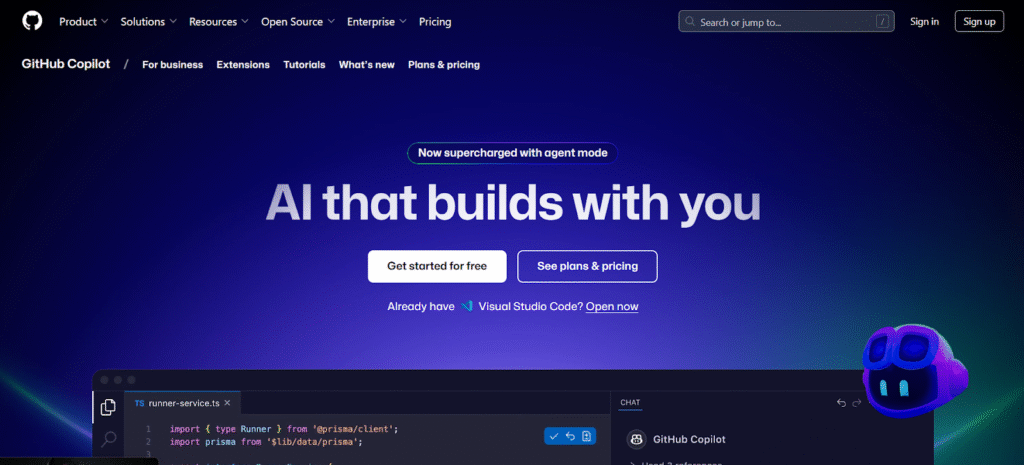
The Github GitHub and OpenAI partnered to produce Copilot, one of the most widely used AI tools in the developer community. Copilot also acts as an intelligent coding assistant, suggesting complete lines or blocks of Python code as you type by using context from comments and previously written code.
It also works nicely with other editors like Visual Studio Code, and it supports Python and other languages. What makes Copilot unique is that it can not only autocomplete your code but also comprehend the meaning of your comments and produce function implementations. Therefore, Copilot increases productivity and decreases time spent on boilerplate or repeated code, regardless of the complexity of the class you’re developing or the script you’re writing.
2. Tabnine
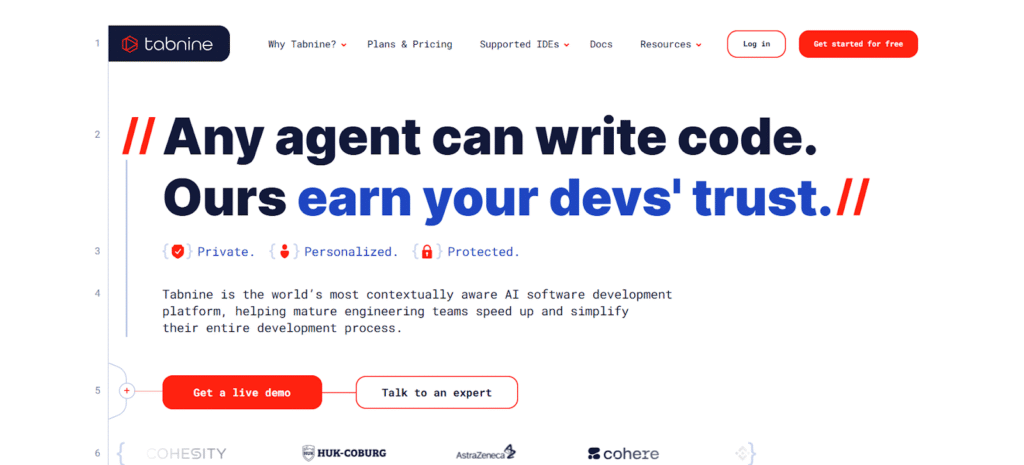
Tabnine is another leading AI code completion tool with a focus on speed and customization. While similar to Copilot, Tabnine distinguishes itself by providing both cloud and local models. This is ideal for teams that work with sensitive or proprietary code.
Additionally, it picks up on your coding habits and changes over time to provide ideas that are more tailored to you. Additionally, a variety of IDEs, such as Sublime Text, are supported by Tabnine. Also, it works smoothly across multiple languages, including Python.
3. AskCodi
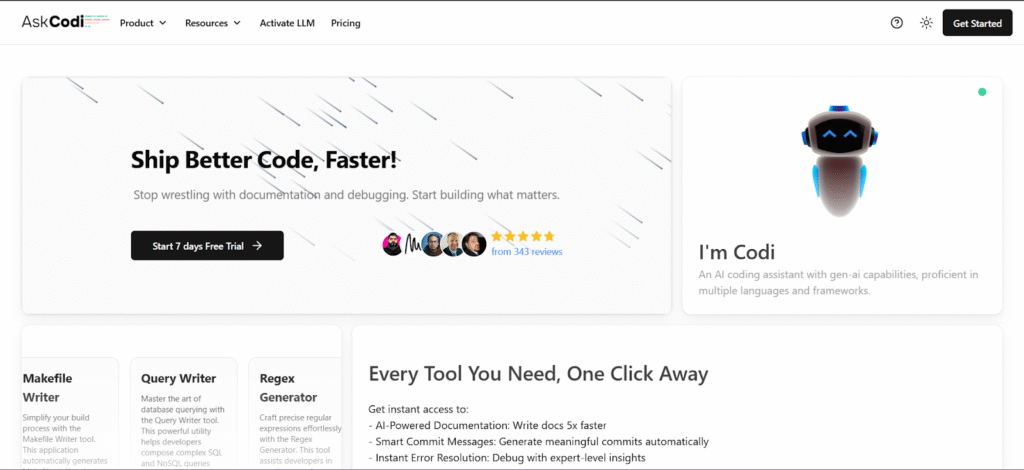
AskCodi is more than just an AI autocomplete tool. It’s like having a chat assistant that helps your code smarter. Moreover, it’s designed to streamline tasks such as writing Python functions and generating test cases. Additionally, it crafts SQL queries and creates documentation. Also, AskCodi operates through a natural language interface.
Hence, by asking questions in plain English, you can get code suggestions. Hence, it’s ideal for both beginners and experienced developers. Also, AskCodi simplifies complex tasks and acts as a helper for all things code-related.
4. Hugging Face
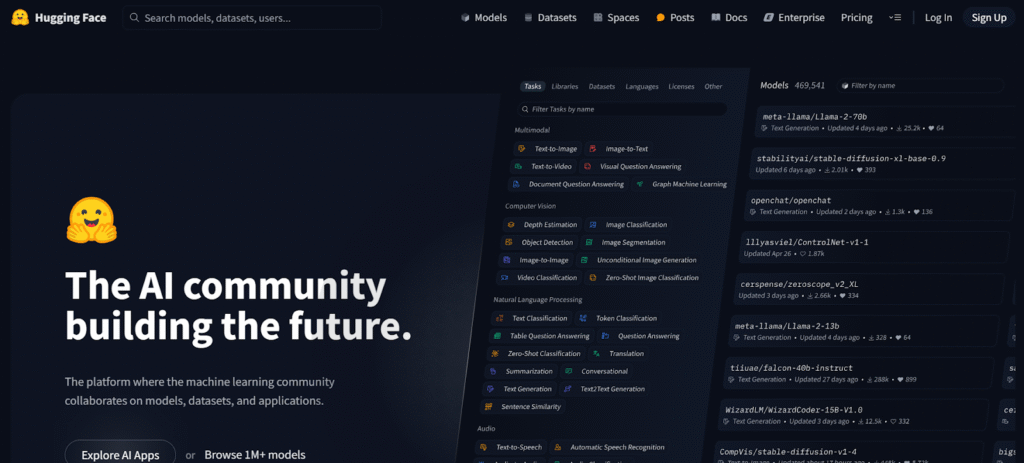
While Hugging Face is best known for advancing the field of natural language processing, it’s also making waves in the AI coding space. Moreover, through its Transformers library and tools, it enables developers to generate Python code using large language models trained on extensive code. Additionally, these models are open source and can be integrated into custom applications. Moreover, Hugging Face tools are perfect for those who want to build AI systems that generate and analyze code.
5. Cursor
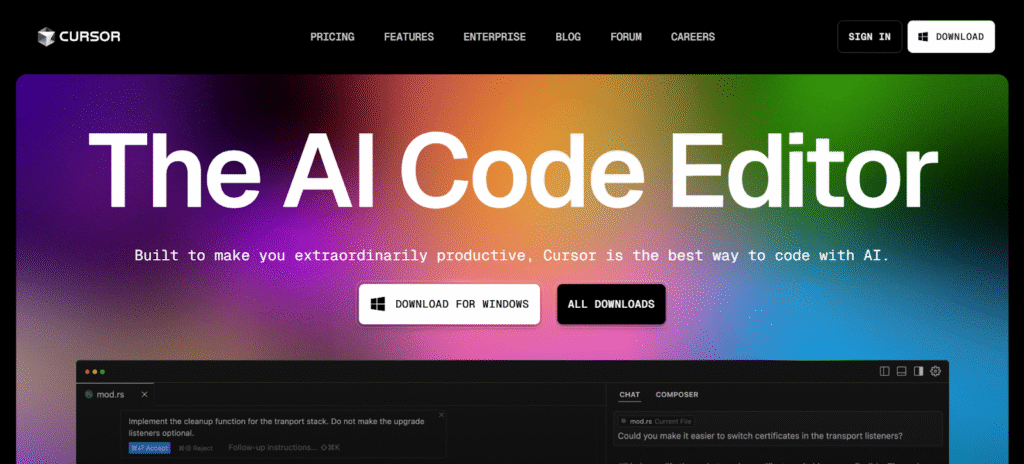
Cursor is a modern and AI-native code editor designed with intelligent coding in mind. The editor allows you to ask questions and refactor code. Moreover, it also provides context-aware completions directly into your workspace. Furthermore, Cursor doesn’t just autocomplete lines; it can understand broader project context and can guide you through unfamiliar codebases.
Moreover, Cursor also has Git integration and a seamless UI. Also, it’s focused on developer productivity. Hence, Cursor feels like a futuristic development environment that’s appealing to Python developers who want AI to be a core part of their workflow.
6. Codiga
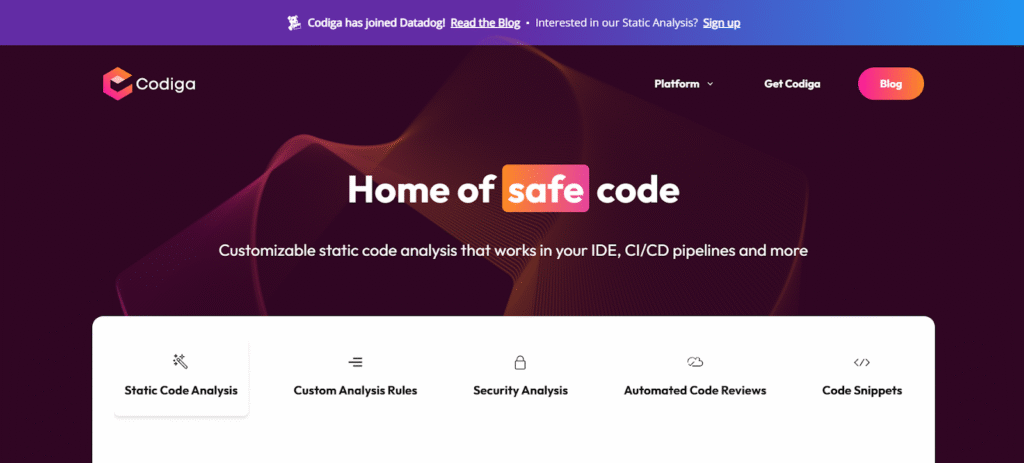
Codiga is another AI coding tool that takes a different approach than others and focuses on code quality and real time feedback. It provides instant suggestions to improve Python code and also detects security vulnerabilities. Moreover, it also enforces coding standards as you type. Furthermore, Codiga can be integrated into your CI/CD pipelines and IDE. Also, it can integrate with your GitHub pull requests to analyze code changes and provide detailed reports.
Moreover, it’s particularly valuable for teams that want to maintain clean and secure codebases across projects. Codiga can catch potential issues early and automate code reviews. Also, it helps Python developers build more robust applications and avoid technical debt.
7. Sourcery
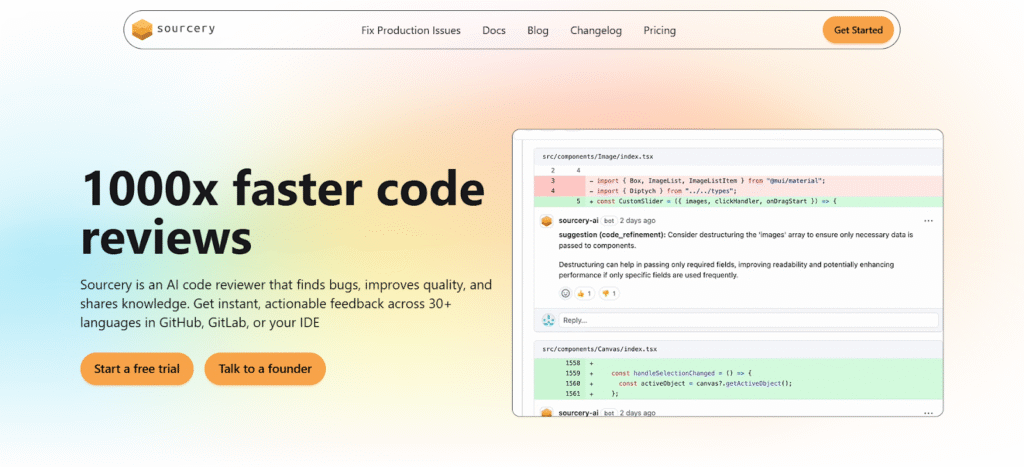
Python developers can generate cleaner code by using Sourcery, an AI code restructuring tool. It analyzes your functionality and makes real-time optimization suggestions. Also, it simplifies loops and removes redundant code. It also integrates directly into editors like VS Code. Furthermore, what sets Sourcery apart is its educational angle. It not only fixes your code but also teaches you how to write better code over time. It’s best for developers who care about readability and maintainability.
8. Replit Ghostwriter
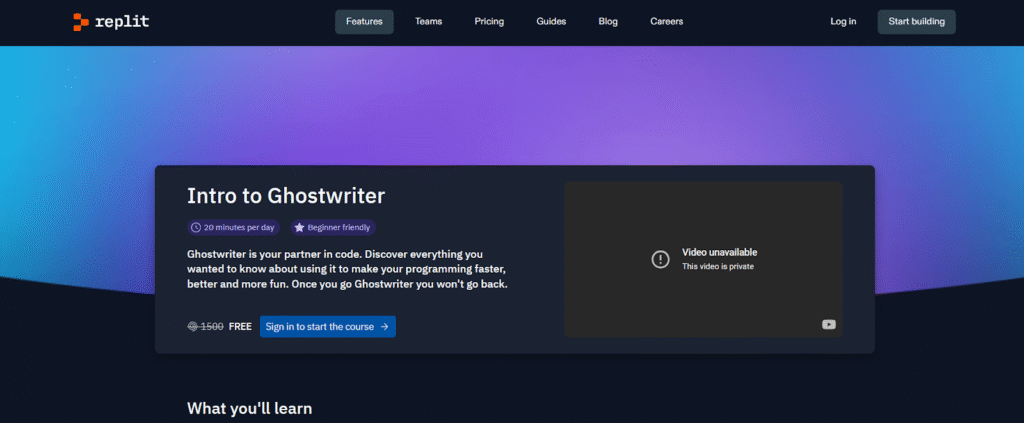
Replit Ghostwriter is a powerful AI coding assistant integrated into Replit’s cloud IDE. Moreover, it helps developers generate Python code snippets and even explain what certain blocks of code are doing. Furthermore, it seamlessly integrates with Replit, hence making it ideal for beginners and remote teams working on Python projects without needing to install or configure anything locally.
9. Codeium
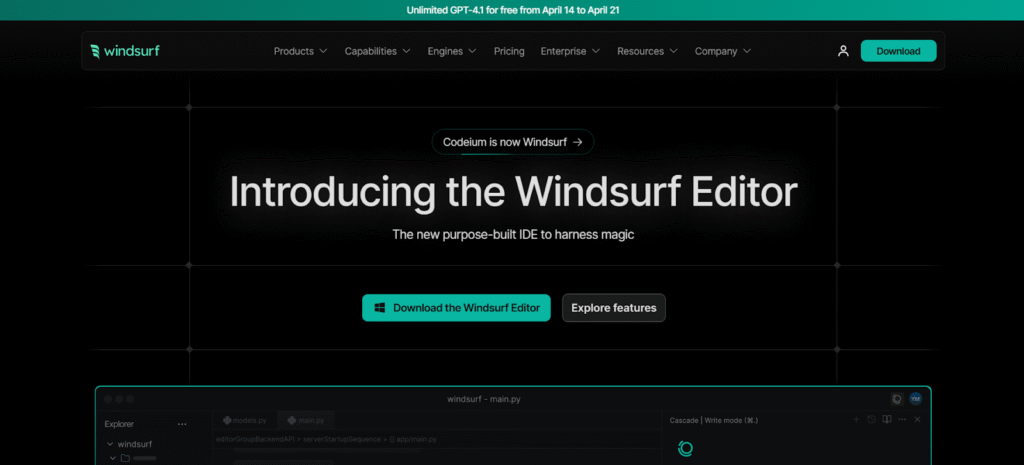
Codeium is a free and fast AI autocomplete tool that supports over 70 languages, including Python. Moreover, it has extremely low latency and offers code completions directly into your IDE. Also, Codeium’s appeal is that it’s fully free for individuals and small teams. Furthermore, it supports offline use as well, which is a big plus for developers working in secure or limited environments.
10. Intellicode
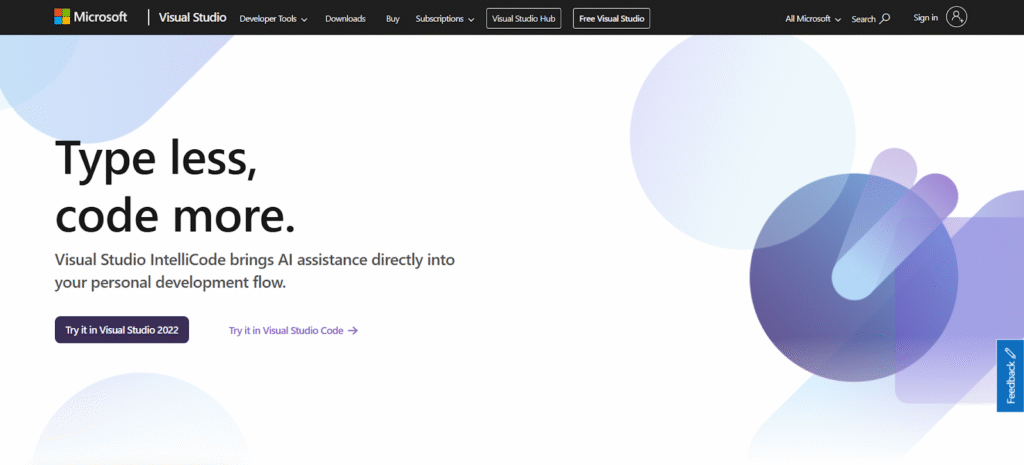
While not as aggressively AI-first as Copilot, Intellicode brings smart and context-aware code completions directly into Visual Studio. Moreover, it learns from open source codebases to suggest relevant completions, especially for Python libraries and patterns. Furthermore, it works in the background. This helps Python developers code faster, especially using popular libraries like NumPy and TensorFlow.
Final Words
AI tools are essential in modern Python development. From writing and refactoring code to improve security and documentation, these tools enhance productivity and reduce cognitive load. You can integrate these tools to write quick scripts, explore ML models, and work on enterprise applications.
Frequently Asked Questions
- AskCodi
- Tabnine
- Replit Ghostwriter

